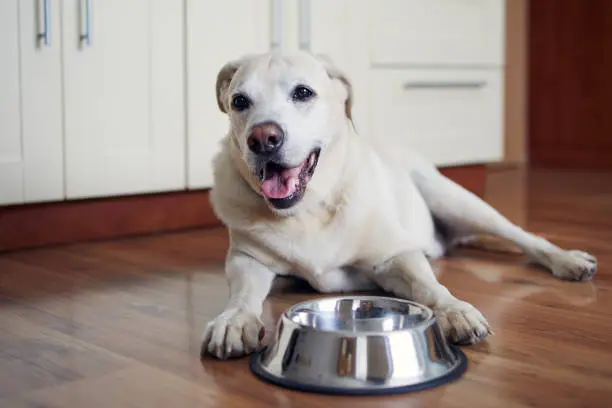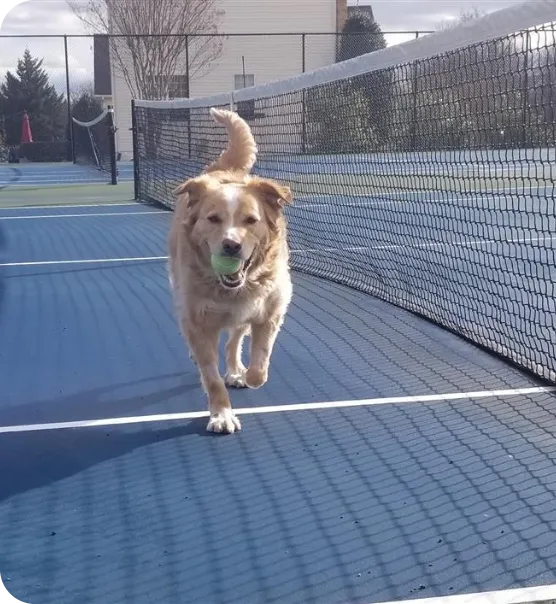No Dog Food is Created Equal and All Dogs Have Different Nutritional Needs
How To Choose The Right Dog Food
No dog food is created equal and not every dog requires the same nutrition. Puppies require different food than their senior counterparts, small dogs have different needs than larger breeds and some dogs prefer wet food over dry food. Over time, nutritional needs change with age, illness, and pregnancy and like humans, choosing the right foods can be the difference between living a healthy energetic lifestyle or a sluggish one. So, let’s learn more about how to choose the right dog food for your special pup.
What Makes Good Dog Food, “Good”?
Despite what many think, dogs are not strictly carnivores and should have a healthy balance of vegetables, fruit, and grains. While protein is important for building muscle mass, essential vitamins, minerals, and fiber are important for a healthy digestive tract.
So How Do You Choose The Right Dog Food?

While only you and your veterinarian can decide, The Dog Stop® has 6 helpful hints for choosing a dog food that suits your canine’s needs.
1. Large and Small Breeds
While it’s true that Chihuahua’s and Great Dane’s are part of the canine family, their nutritional needs are dramatically different. Smaller breeds require more calories than bigger dogs because of their higher metabolic rate. Larger breeds require food that promotes musculoskeletal health, especially in puppies. Feeding a small dog large breed food may also present a choking hazard because the kibbles are typically bigger.
2. Dogs with Dietary Needs
Some dogs have dietary restrictions while others have sensitive bellies. For instance, if your dog has a grain allergy, choose grain-free dog food. Feeding your dog the right food will come down to you and your veterinarian. Your vet may prescribe a dog food or supplement specifically for your dog’s dietary needs or they may advise you on the best commercial dog food to buy in-store. If you feel your dog has a dietary issue, always consult your vet.
3. Wet Food vs. Dry Food
In most cases, the choice between wet vs. dry food comes down to expense, dietary needs, and if your dog is a picky eater. Dry foods are cheaper and can be easily stored, while wet foods are a bit pricier and require refrigeration when opened. Wet foods are more palatable than dry and though both contain the same ingredients, wet food contains a more concentrated amount of them.
4. Puppy Food, Adult Dogs and Seniors 
As a general rule of thumb, puppies need puppy food for the first year. Feeding a pup adult food deprives them of the nutrition they need during the first year. It’s also worth considering if your puppy is a small or large breed dog. After a year, you can transition your puppy to a breed-based adult food. While it depends on the breed, dogs are considered seniors at the age of seven. Seniors require a bit more protein since with age they become less energetic and muscle mass diminishes. A good balance of fiber will also help with the occasional onset of constipation and regulation of glucose which also diminishes with age.
5. Pregnant Pups
Pregnant females should eat a high-quality, easily digestible, well-balanced diet. Per the AKC, foods should contain at least 29 percent protein and 17 percent fat. For adequate energy intake, choose a diet rich in soluble carbohydrates and low fiber.
In general, do not add supplements like meats, milk, vitamins, and minerals as feeding excessive amounts of calcium or vitamin D can cause calcification of the soft tissues of the fetuses while additional meat products can reduce the carbohydrate content of the diet and can lead to hypoglycemia and stillbirths in the puppies.
Appetite may decrease during pregnancy so be sure to choose an appetizing food. Feed her at least two times a day and if she isn’t eating as often as you’d like, allow her to graze on several smaller meals throughout the day.
6. The Pooper Scooper Tells All!
It may be a stinky subject, but if your pup is producing a healthy stool and goes regularly with ease, the food is probably just right. If your dog is constipated or experiencing diarrhea it’s probably time for a change. Always check with your Vet as there could be an underlying medical issue.
Visit The Dog Stop®’s Retail Store for a healthy variety of organic foods, supplements, and treats for dogs of all ages and breeds, and be sure to check out our Boarding and Doggie Day Care services!




